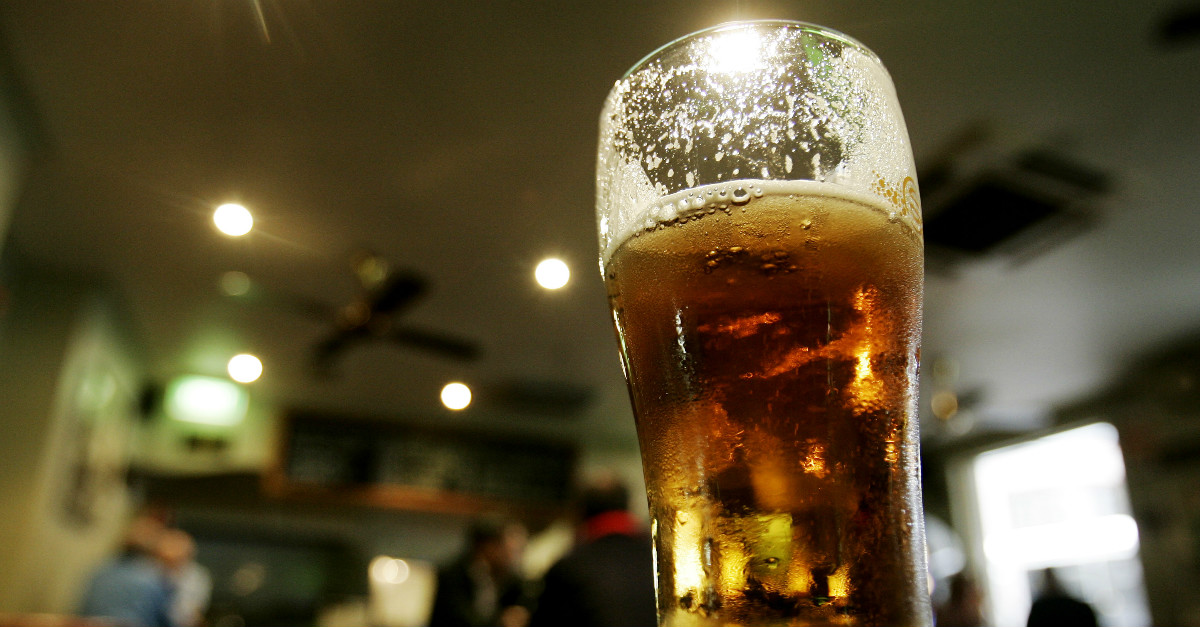Here in Minnesota, our reward for making it through the cold winter is a glorious spring and summer, days I do my best to fill with as many lakes and restaurant patios as possible.
Videos by Rare
It was at one such patio the other day that I took a moment to observe the diners around me. At nearly every table, dinner was paired with a drink, mostly offerings from our state’s booming craft breweries.
“You know,” I said to my husband, “it’s so hard to imagine that anyone thought Prohibition was going to work. Did they really believe our government could make this entire country stop drinking?”
Nearly a century later, the idea of banning alcohol nationwide strikes most of us as absurd. (The similar absurdity of banning drugs like marijuana, alas, has not occurred to Washington.) But prohibitionary policies didn’t end with Prohibition proper. Here are three anti-booze policies that really need to go.
No liquor on Sunday—or sometimes Monday
In just two weeks, it will finally be legal to buy packaged alcohol on Sundays in Minnesota. Our legislature got around to ending this much-debated blue law back in March, but other states aren’t so fortunate. Currently, about one in five states still ban Sunday liquor sales, and many more have laws that complicate Sunday sales.
In Texas, for example, you can buy beer on Sundays, but only between midnight and 1 a.m. (or 2 a.m. in some cities) and then again from noon until midnight. Wine gets the same rules, except you can also buy wine between 1 and 2 a.m. no matter where you are. (Why is wine safer at 1:30 in the morning than beer? Beats me.)
RELATED: Cutting off the alcohol prohibitionists on St. Patrick’s Day
You cannot, however, purchase packaged liquor, and liquor distributors can’t even deliver spirits to retail stores on Sunday. Oh, and the cherry on top of this mess: if Christmas or New Year’s Day falls on a Sunday, you can’t buy liquor the following Monday—just for good measure, I guess.
No beer at the beach
In much of the country, it’s illegal to drink on the beach. In fact, it’s so rare to find a beach where drinking is legal that the Internet helpfully provides lists of the exceptions.
Of course, no one wants broken glass in the sand. That’s the main reason cited for a ban currently under consideration in the Oregon state legislature despite the far more obvious and less obnoxious option of enforcing anti-littering laws that already exist.
No warm beer
The state of Indiana loosened up its blue laws a little in 2010, allowing liquor sales on Election Day and letting some breweries fill growlers on Sunday. So far, so good.
Less good is Indiana’s bizarre cold beer law, which says beer sold anywhere but restaurants and liquor stores must be room temperature. It is legal for gas stations and convenience stores to sell beer, but it is illegal for them to sell beer that is already “iced or cooled.”
The cold beer law is getting fresh attention in Indiana thanks to a local chain of convenience stores called Ricker’s. The owner, Jay Ricker, wanted to sell his customers cold beer, so he decided to follow the letter of the (really stupid) law. Ricker installed small seating areas and started selling microwaved burritos in two of his stores, a change that was enough to net him a restaurant classification.
“It’s crazy,” Ricker said of the legal game of limbo he played. “It points out the absurdity of the current regulations.”
RELATED: Obamacare calorie regulations will make it harder to get your favorite craft beer
The Indiana state legislature did not agree. Instead, it doubled down, passing a new law that limits cold beer to restaurants that sell a minimum of 60 percent of their alcohol for on-premise consumption, shutting down the hopes of convenience store owners like Ricker.
Unsurprisingly, the new law’s development is dripping with crony capitalism: businesses currently licensed to sell cold beer want the state to quash any would-be competition.
This is not lost on Ricker’s customers. “What I don’t like is the government making decisions on who can sell things,” said a patron named Brent Land. “The only reasons for not allowing other high-volume retailers to sell it cold is the package liquor lobby… When the government supports that, is the government trying to prop up a dying business model?”
That’s exactly what it’s doing, and it’s time for it to stop.



